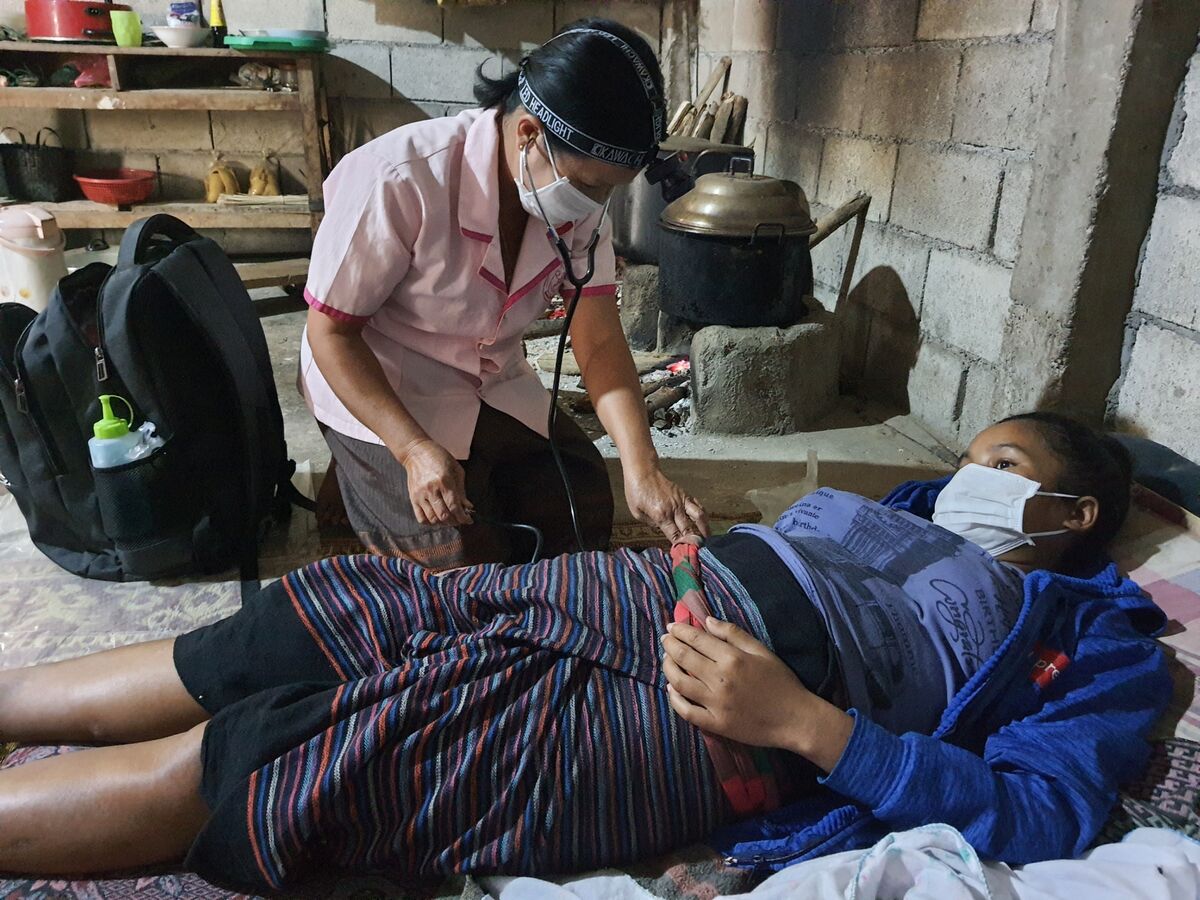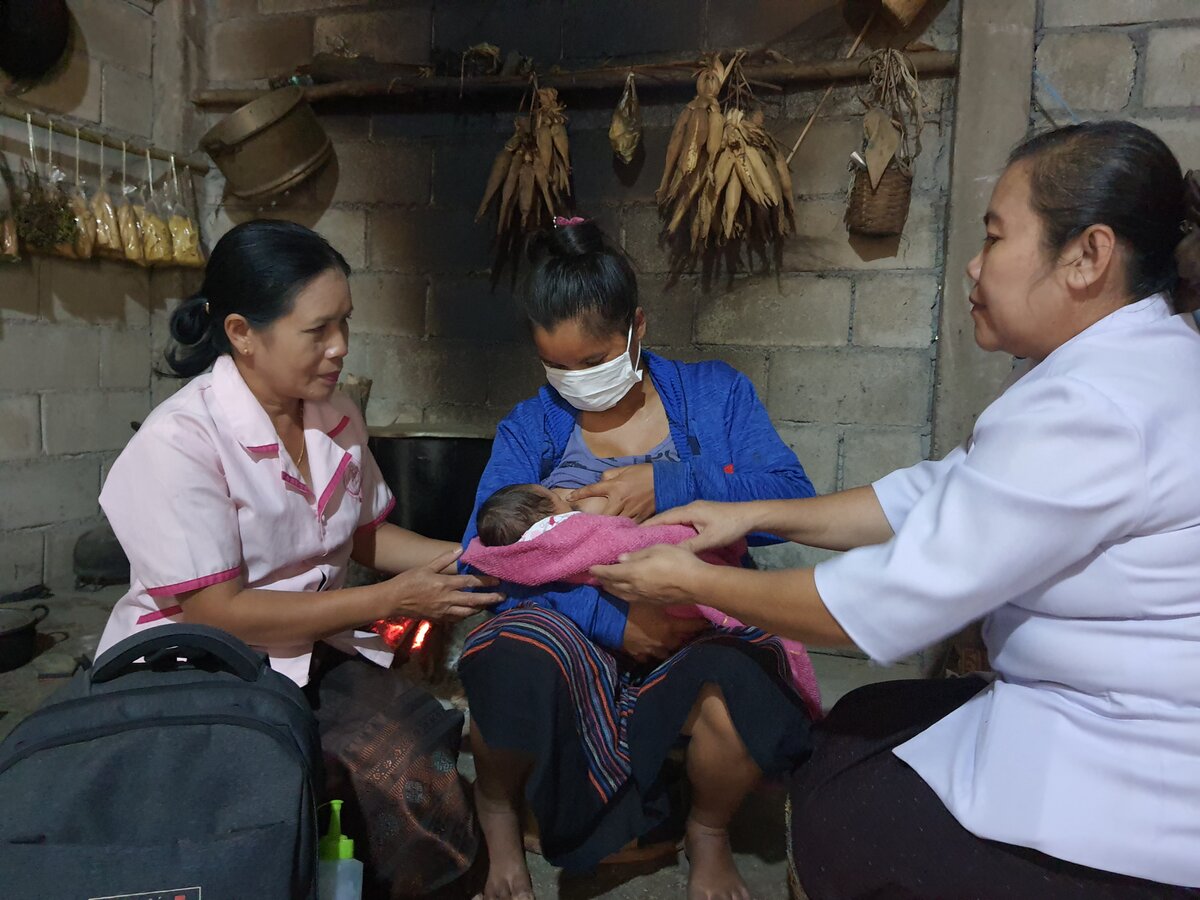In the past, we did not have the midwifery District Trainer team to conduct the supportive supervision activity in our Health Centre (HC). We had only District Health Office (DHO) team to monitor our HC (1 time per year). The routine work that we didfollowed what we had studied from college.
After that, we started to have supervision and monitoring from the District Trainer team continuously. I personally found that there have been so many things that changed from what we never did before and what we can do now. Things such as good techniques in Antenatal Care (ANC), Skilled Birth Attendant (SBA) and Postnatal Care during home visits.
I feel very happy that the District Trainer team came to visit us, even though it was raining, with hard road condition, the District Trainer team still came to visit us.
Even though we had studied midwifery in the college, we did not know
these skills well. The regular supervision at my health centre from the
District Trainer team has led us into being able to do these things in
real practice. Besides that, I have got a lot of other skills like doing
pregnancy ultrasound and new knowledge from research about pregnant
women and I have learnt how to do things such as:
I feel very happy that the District
Trainer team came to visit us, even though it was raining, with hard road
condition, the District Trainer team still came to visit us. It makes me have
the motivation to work hard and have higher responsibility and to change
behavior such as HC is always cleaned, neat and tidy, the delivery room is
cleaned and the delivery instruments are autoclaved. When there is a pregnant
woman with a complication in a remote village area I decide to go out there and
handle complications according to the instruction from the District Trainer
team. After that, I feel very proud that we have not had a maternal mortality
in the past 4 years.
Background
By Health Gulliver,
Health Delegate, Swiss Red Cross in Laos
Swiss Red Cross (SRC) has worked closely with both Provincial Health Department and District Health Offices in Phonexay and Chomphet Districts in Luang Prabang Province since 2015. SRC’s Strengthening of Mother, Neonatal and Child Health Projects (Phase 1 & 2) have provided infrastructure and equipment support to health facilities, motorbikes and equipped outreach bags to promote village level clinical services including health promotion, immunisation and growth monitoring of under 5 years children.
Fundamental to the successes in improving access and the quality of reproductive health services has been the onboarding and mentoring of 12 District Trainers to offer regular, direct clinical supervision and informal trainings to staff in all 19 health facilities in the two target districts. A full suite of reproductive health clinical services have been included in health centre staff formal and informal trainings: family planning; pregnancy ultrasound; ANC; EENC and EMONC with the International Confederation of Midwives (IMC) Competency Checklists used as a framework for clinical service readiness assessments. Geographical isolation and poor road conditions- especially in the rainy season, sees health facility staff highly valuing the consistent, direct support given by the SRC mentored District Trainer teams.
In 2019, the Luang Prabang Province witnessed 11 maternal deaths, among a national maternal mortality ratio of 125/100’000. In the project districts of Chompet and Phonxay, no maternal deaths occurred in 2018 and 2019. This simple ‘story from the field’ is evidence of this valuing.












